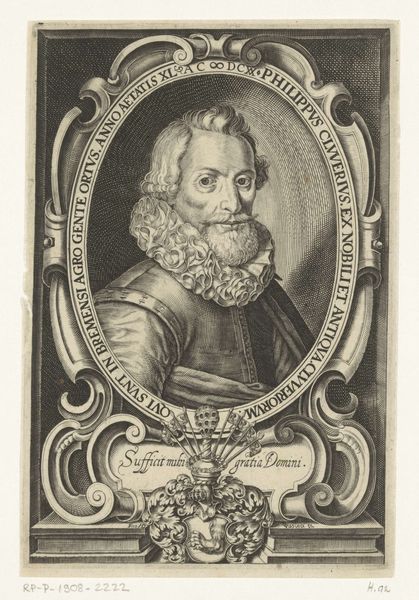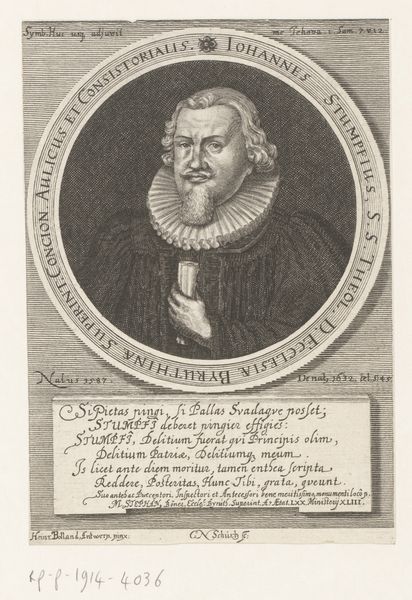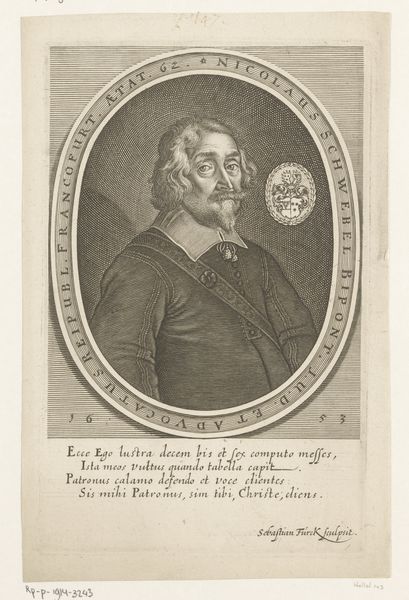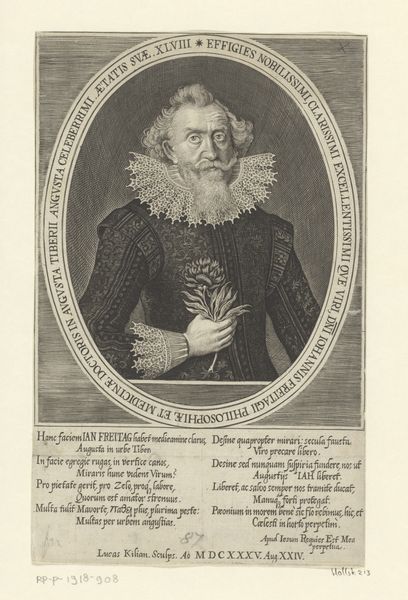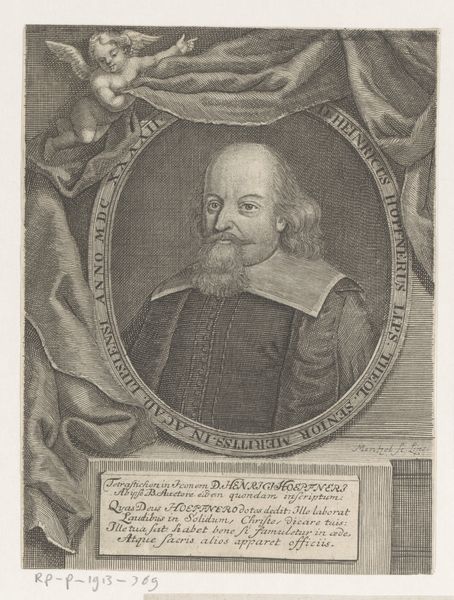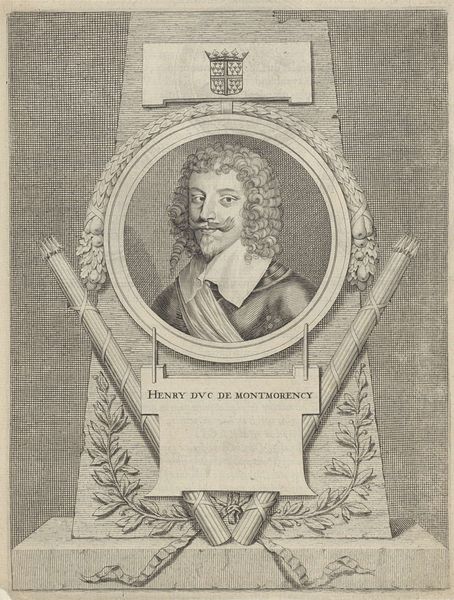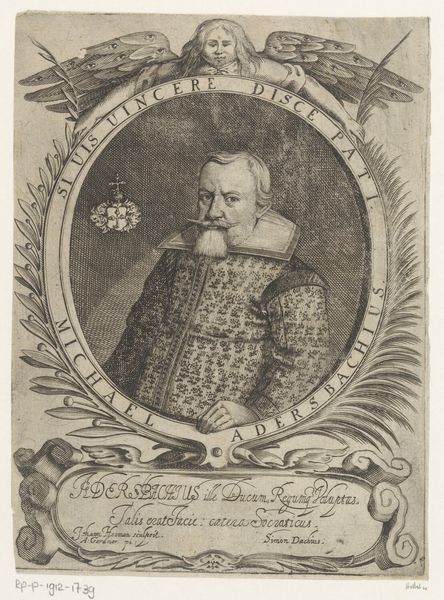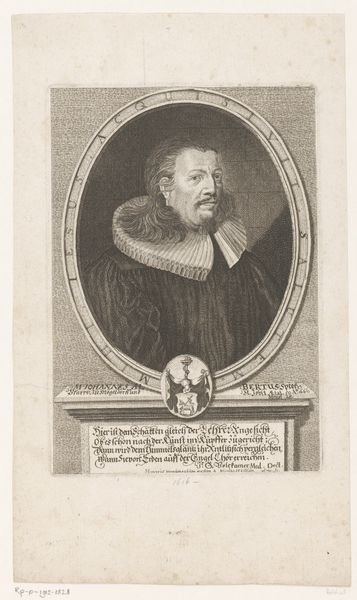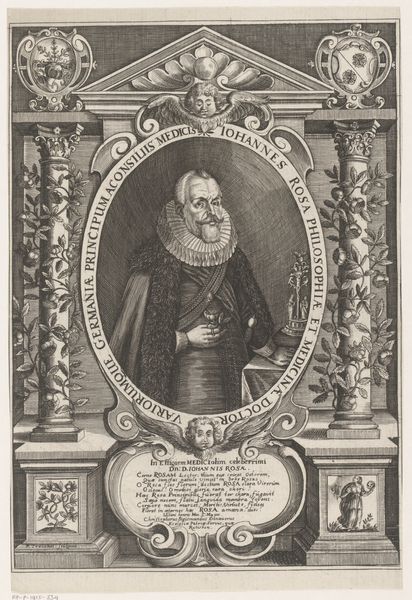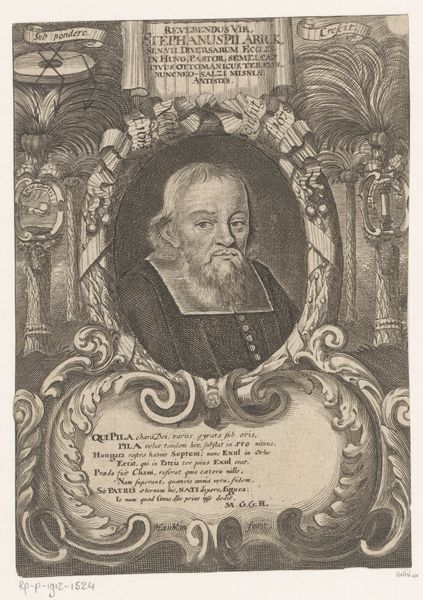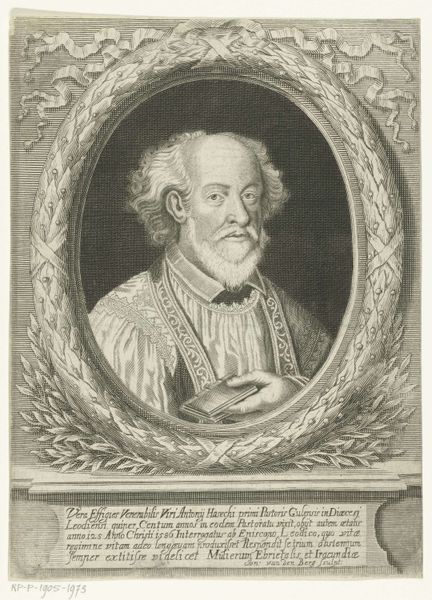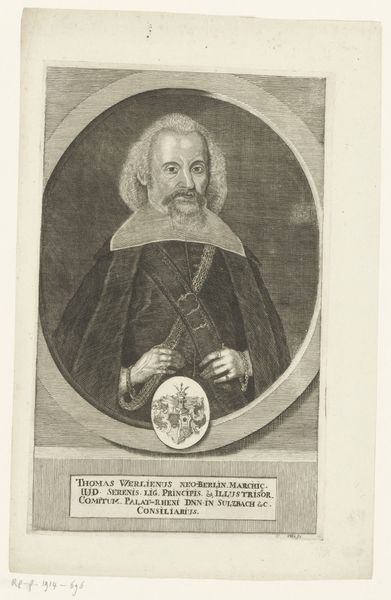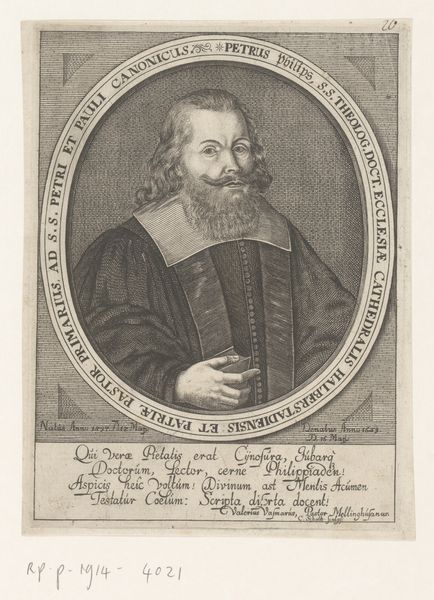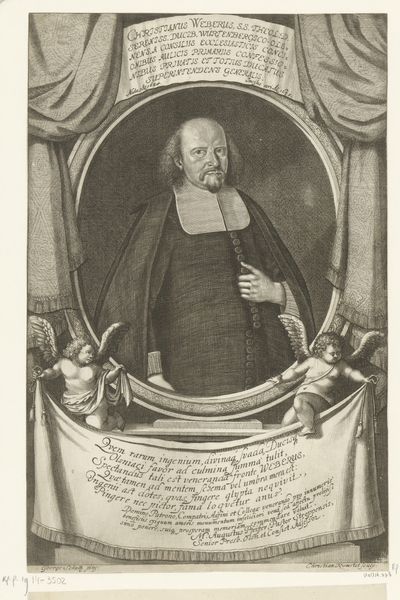
Dimensions: height 122 mm, width 76 mm
Copyright: Rijks Museum: Open Domain
Christian Romstet made this portrait of Gabriel Drechsler around 1681, using engraving on laid paper. It's a process rooted in the printmaking tradition, where lines are incised into a metal plate to hold ink. This technique demands precision and control, virtues we might associate with Drechsler himself, a mayor whose likeness was worth preserving. Notice the elaborate details, from the laurel wreath to the intricate pattern of Drechsler's garments, achieved through meticulous labor. Every line etched into the plate by Romstet required time, skill, and focused effort. Printmaking made images available to a wider public than painting did. This portrait then speaks to the rise of a merchant class, with enough disposable income to purchase art, but also invested in projecting a certain image of themselves. Considering the relationship between labor and class, Romstet's print offers insight into the hierarchies of the time. It underscores how materials and making are not neutral, but imbued with cultural and social significance.
Comments
No comments
Be the first to comment and join the conversation on the ultimate creative platform.
